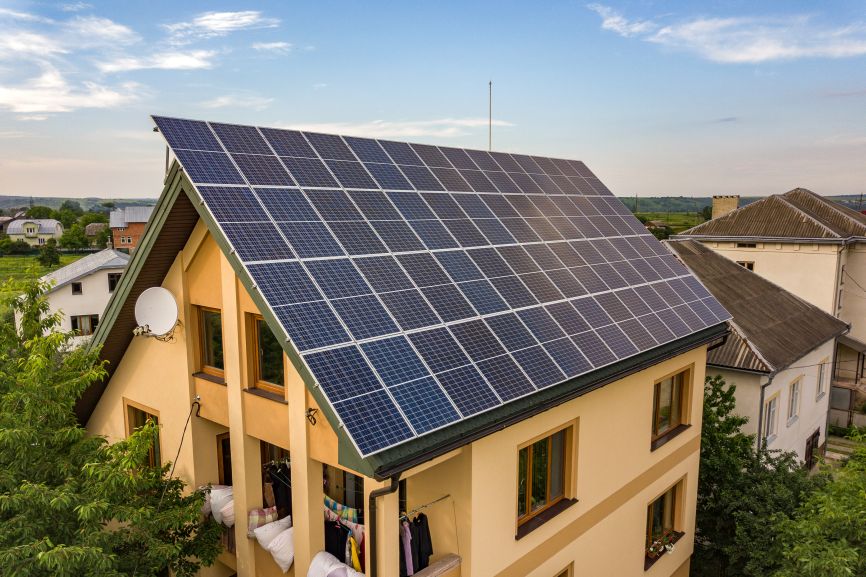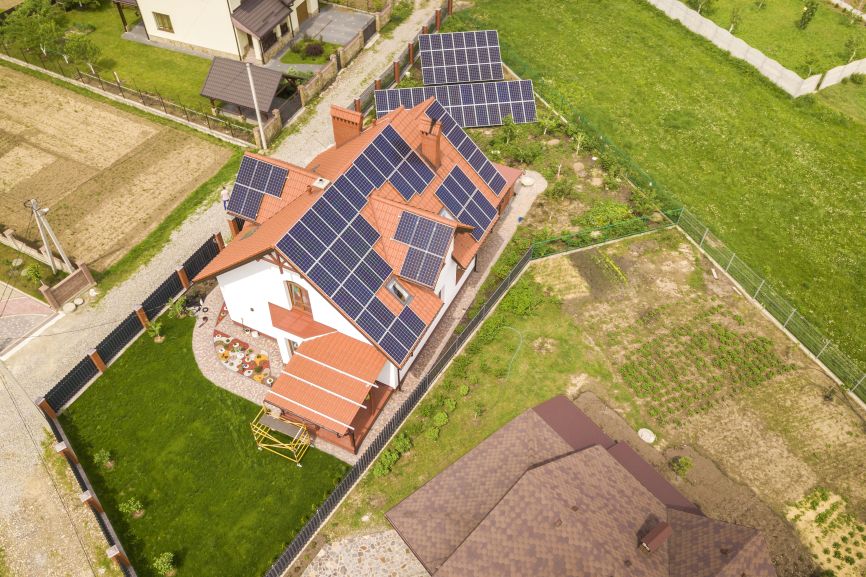If you’re a homeowner in New Jersey, Massachusetts, California, or Texas exploring solar energy, you’ve probably run into confusing terms like the “IRC certificate for solar panels.” For many, this sparks real frustration: Do I need a special certificate before installing solar? Is it about safety? Or just paperwork? The truth is, there isn’t one single “IRC certificate”, but the International Residential Code (IRC) plays a huge role in making sure your solar installation is safe and compliant. At First Solar Installers, we help homeowners cut through this confusion, working with certified local professionals who follow every required code so you don’t have to worry about whether your system meets the right standards.
What Does “IRC Certificate for Solar Panels” Really Mean?
Many homeowners assume the IRC (International Residential Code) issues a physical certificate for solar panels. In reality:
- No single “IRC certificate” exists.
- The IRC is a set of building codes that govern safe home construction, including rooftop solar panel installations.
- Local building departments use the IRC as the benchmark when reviewing solar permit applications.
Translation: when someone says “IRC certificate,” they usually mean proof that your solar project meets IRC code compliance.
Why Does the IRC Matter for Solar Installations?
Installing solar isn’t just about mounting panels and connecting wires. The system becomes part of your home’s structure. The IRC ensures:
- Structural safety – Panels won’t overload your roof under wind, rain, or snow.
- Fire safety – Wiring and equipment are installed to reduce risk.
- Durability – Systems last decades without causing roof damage.
- Code compliance – Your project passes local inspection, avoiding costly delays.
Without following IRC guidelines, you risk failed inspections, voided warranties, or worse, unsafe conditions for your home and family.

Related Question: Do Solar Panels Need an IRC Certificate to Be Installed?
Not exactly. What’s required is permit approval from your city or county, and those approvals rely on the IRC. Your installer submits plans stamped by a licensed engineer showing compliance with:
- Roof load calculations (weight of panels + mounting system).
- Wind and snow loads (specific to your region, e.g., heavy snow in Massachusetts, strong winds in Texas).
- Fire access pathways (spacing around panels for firefighter safety).
Common Misconceptions Around the “IRC Certificate”
- “I need to apply for the certificate myself.” → Wrong. Your installer and local building authority handle compliance.
- “It’s a document proving my panels are certified.” → Incorrect. Manufacturers already provide UL and IEC certifications for product safety.
“It’s about code compliance, not paperwork I keep at home.” → Correct
IRC vs. Manufacturer Certifications – What’s the Difference?
It’s easy to confuse IRC compliance with other certifications:
- IRC: Focuses on building safety and installation standards.
- UL/IEC Certifications: Ensure solar panels, inverters, and equipment meet safety and performance testing.
- NABCEP Certification: Verifies the installer’s professional skills.
Homeowners don’t need to chase down the IRC, just ensure your installer is experienced with local code requirements.

Local Examples of IRC Impact
- New Jersey & Massachusetts: Heavy snow load requirements mean racking must support more weight.
- California: Wildfire-prone areas have stricter spacing and fire access rules.
- Texas: High wind areas (like coastal regions) require stronger mounting hardware.
These aren’t just technicalities. They directly affect how your solar panels are installed and how long they’ll last.
Who Provides Proof of IRC Compliance?
- Your installer → Prepares and submits design plans.
- Licensed engineer → Stamps structural calculations.
- Local building inspector → Approves installation after checking for IRC compliance.
Homeowners typically see this proof in the form of permit approval documents, not a “certificate” you keep.
How First Solar Installers Helps Homeowners Navigate This
We’ve seen too many homeowners delayed because an installer cut corners or misunderstood local code. At First Solar Installers, we:
- Partner only with certified, vetted installers in NJ, MA, CA, and TX.
- Ensure every project meets IRC and local building requirements.
- Simplify the process so you don’t have to stress about what paperwork or compliance is needed.
Get Your Free Solar Quote Today and let us connect you with a trusted local pro who handles permits, compliance, and installation, so your project is smooth from start to finish.
FAQs – IRC Certificate for Solar Panels
Q1: Is an IRC certificate the same as a solar panel warranty?
No. Warranties cover product performance; IRC compliance ensures installation safety.
Q2: Who enforces IRC requirements?
Your local city or county building department enforces them during permitting and inspection.
Q3: Do all states use the same IRC code?
Most U.S. states adopt the IRC, but some add their own amendments. Always check with your local authority.
Q4: Can I install panels without IRC compliance?
Technically no, your project won’t pass inspection, and connecting to the grid will be denied.
Cutting Through the Confusion – Final Thoughts
The “IRC certificate for solar panels” isn’t a single piece of paper, it’s about ensuring your system is built to code, passes inspection, and keeps your home safe. For homeowners, the real takeaway is this: choose an installer who understands IRC compliance and your local building codes. That way, you get peace of mind, smooth approvals, and a system that lasts for decades.
If you’re ready to install solar in New Jersey, Massachusetts, California, or Texas, let First Solar Installers connect you with the right certified professionals to handle everything.